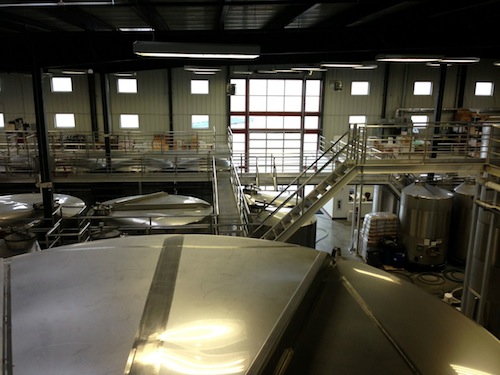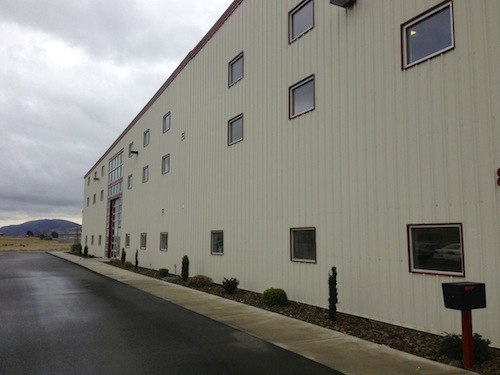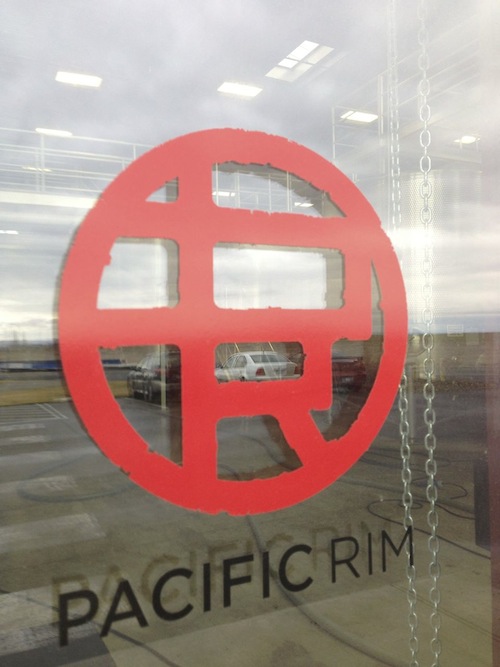
WEST RICHLAND, Wash. – In the two years since Pacific Rim Winemakers was sold to an international wine company, the Riesling producer founded by Randall Grahm is charging ahead with increased production and new products.
Pacific Rim was founded in 1992, when Grahm began making a Riesling from Washington and German grapes at Bonny Doon, his winery in Santa Cruz, Calif. In 2006, Grahm partnered with the denHoed family in Washington to build a winery in the shadow of Red Mountain.
By 2010, Grahm was looking to downsize and focus on his first love – Bonny Doon – so he sold off such brands as Big House, Cardinal Zin and Pacific Rim.
“He was trying to tame the beast that Bonny Doon became,” said Nicolas Quillé, general manager and winemaker at Pacific Rim – and a longtime friend and confidant of Grahm’s. “I knew his heart was in California and Rhône varieties.
“He’s the original Rhône Ranger,” Quillé added. “He’s not the Rhine Ranger.”
Pacific Rim sold to Mariani family of New York

Pacific Rim landed in the hands of the Mariani family, third-generation wine importers based on Long Island, N.Y. The Marianis gained fame and fortune by importing Riunite, which became the No. 1 imported wine in the United States at one point, bringing in 11 million cases per year in the 1980s.
[Watch a classic “Riunite on ice” commercial from the 1980s.]
The family also invested heavily in the Brunello region around the Tuscan hilltown of Montalcino. In an area where most producers make perhaps 10,000 cases, the Marianis have 8,000 acres for their Castello Banfi brand and make 1 million cases of the highly regarded Brunello di Montalcino, one of Italy’s most cherished wines.
In 1988, the Mariani family began working with Concha y Toro in Chile and now imports 4.5 million cases to the United States.
In all, the Marianis handle 8 million cases of wine. But until two years ago, they’d never bought anything in the United States, even though that’s where their business was founded in 1919. That all changed when they purchased Pacific Rim, which now operates under the umbrella company VinMotion headquartered in Portland, Ore.
Pacific Rim now makes 200,000 cases of Riesling, up from 160,000 just two years ago. The winery also makes a small amount of Gewürztraminer, Chenin Blanc and a fortified raspberry wine called Framboise.
Pacific Rim is positioning itself for more growth, though probably not in Riesling. It has a brand called Sweet Bliss, which is a 30,000-case label of sweet red, white and pink wines – none of which are sold in the Northwest. Instead, they are big in the Midwest, and they are a blend of Washington and Italian grapes.
Quillé also has started a brand called Rainstorm, which is made with Oregon grapes. Right now, the Pinot Noir is made in Oregon, and the Pinot Gris is made at Pacific Rim in Washington. It’s a 25,000-case-brand – “which for Oregon is significant,” Quillé said.
This fall, all production for Rainstorm will be at the West Richland facility, thanks to a large expansion in space.
Pacific Rim doubling its production space in West Richland
When the denHoeds built Pacific Rim, it was 26,000 square feet with a capacity for 300,000 cases. Another 26,000-square-foot space was built for Ascentia Wine Estates, where Covey Run wines were aged. When Ascentia disintegrated last year, Covey Run and Columbia wineries were purchased by Gallo, which chose not to renew the lease on the West Richland facility.
So Pacific Rim is taking over that side of the building and installing a new crush pad and tanks to handle red wine. This fall, all grapes for Rainstorm will be harvested in the Willamette Valley and trucked to West Richland to be processed.
In the next few years, Quillé plans to launch a brand using Bordeaux grapes and is doing a major planting at Wallula Vineyards east of Kennewick, Wash., to accommodate this.
Drop in Riesling sales worrisome
With statistics showing a worldwide drop in Riesling sales, Quillé doesn’t see a lot of growth potential there, though he does think Washington could crush as many as 40,000 tons of Riesling in the next one to three years.

“There’s a lot of Riesling in the ground,” he said. “Though I don’t know of many people planting Riesling right now.”
He said sales of high-end German Riesling is dropping, while domestic Riesling is treading water or even growing a bit, thanks to Chateau Ste. Michelle, the world’s largest Riesling producer.
“Ste. Michelle is doing great,” he said. “Ste. Michelle is such a dominant player in the domestic market that for anyone who wants to make a dent in that business … it’s scary, it’s very tough.”
Quillé said Pacific Rim works to differentiate itself by providing a different style of Riesling at a slightly higher price point.
“You can’t go head to head on price point with them,” he said. “That is a tough business.”
Where Quillé sees an opportunity for Pacific Rim is in the Pacific Northwest.
“Only 7 percent of our sales are in the Northwest,” he said. “That’s very unusual for a Northwest winery.”
This stems from Pacific Rim’s California roots. In fact, the winery sells 30,000 cases in California – a lot for a Washington winery.
“Before the winery was built, we were viewed as a California winery. Now, we have been grandfathered in in California.”
As such, he sees the Northwest as a terrific opportunity to gain sales as the company grows into a facility that, he admits, was way too large when Pacific Rim arrived from California.
“In retrospect, we built it too big to start off with,” he said. “Now that we are filling those shoes, it feels good. It’s paying off.”


Leave a Reply